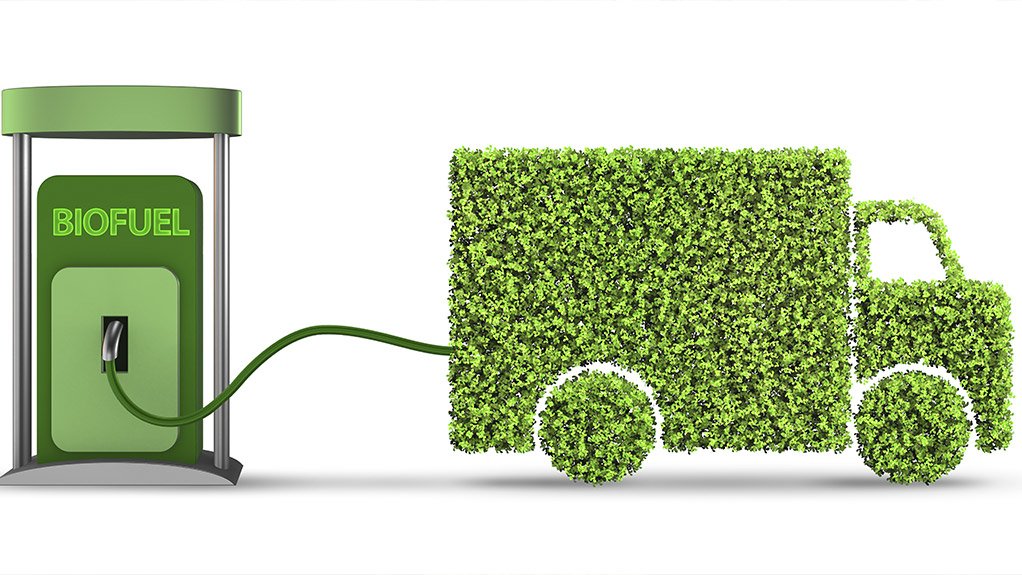Strong policy needed to grow a green biofuels industry


BIOFUEL POWERED DELIVERY VAN Biofuels can burn cleaner but are not climate neutral
To ensure that the South African biofuels industry grows sustainably, World Wide Fund for Nature South Africa (WWF-SA) Bioenergy programme manager Tjaša Bole-Rentel says there needs to be a differentiation at policy level based on each biofuel’s environmental impact.
Biofuels have the potential to be an environment-friendly alternative to fossil fuels, however, if the environmental impacts of the feedstock’s origins are negative, this can, in some instances, be worse for the environment than fossil fuels.
For example, Bole-Rentel explains that if virgin land were to be cleared to make way for a plantation of oilseeds to make biodiesel, this would have a negative environmental impact. But, if biodiesel were to be made from used cooking oil that had been diverted from landfill, the outcome would be a positive one for the environment.
“Both fuels can be used in the same way by the end-user but it’s how the biofuel is produced that matters most when it comes to weighing the environmental risks and benefits.”
In addition, policymakers often assume that biofuels are climate neutral, but that is not the case. Even when biofuels are made with feedstock that is part of a closed carbon cycle, there are emissions attached to the production and distribution of biofuels. Biofuels can burn cleaner and come from renewable sources but based on current prevalent production technologies cannot be entirely climate neutral.
When produced correctly, however, biofuels have multiple potential environmental benefits, including greenhouse-gas savings, waste diversion and a reduction in local pollutants, compared to fossil fuels.
Bole-Rentel says policymakers will have to make “the distinction between the good and bad biofuels at policy level if we are to realise true environmental benefits and avoid potential risks and pitfalls”.
“In the absence of a robust policy and regulatory framework that ensures we achieve the benefits and minimise the risks associated with biofuels, the producers and consumers of biofuels can request voluntary sustainability certification of the fuel.”
A voluntary sustainability certification for biofuels would work in the same way they work for other consumer products or commodities with Fair Trade certification being a good example.
She adds that until we have a clear and robust policy articulating a national ambition for sustainable biofuels, the sector will remain under-developed. For the private sector to feel secure in investing in the biofuels industry, they need policy security that will ensure a demand for biofuels.
Currently, most biofuels cannot compete with fossil fuels in South Africa on price. There are a number of policy instruments the government could consider, from the blending of biofuels with fossil fuels to subsidising feedstock production and capital grants. But, ultimately, any support should be contingent on the sustainability credentials of the biofuel, Bole-Rentel concludes.
Article Enquiry
Email Article
Save Article
Feedback
To advertise email advertising@creamermedia.co.za or click here
Press Office
Announcements
What's On
Subscribe to improve your user experience...
Option 1 (equivalent of R125 a month):
Receive a weekly copy of Creamer Media's Engineering News & Mining Weekly magazine
(print copy for those in South Africa and e-magazine for those outside of South Africa)
Receive daily email newsletters
Access to full search results
Access archive of magazine back copies
Access to Projects in Progress
Access to ONE Research Report of your choice in PDF format
Option 2 (equivalent of R375 a month):
All benefits from Option 1
PLUS
Access to Creamer Media's Research Channel Africa for ALL Research Reports, in PDF format, on various industrial and mining sectors
including Electricity; Water; Energy Transition; Hydrogen; Roads, Rail and Ports; Coal; Gold; Platinum; Battery Metals; etc.
Already a subscriber?
Forgotten your password?
Receive weekly copy of Creamer Media's Engineering News & Mining Weekly magazine (print copy for those in South Africa and e-magazine for those outside of South Africa)
➕
Recieve daily email newsletters
➕
Access to full search results
➕
Access archive of magazine back copies
➕
Access to Projects in Progress
➕
Access to ONE Research Report of your choice in PDF format
RESEARCH CHANNEL AFRICA
R4500 (equivalent of R375 a month)
SUBSCRIBEAll benefits from Option 1
➕
Access to Creamer Media's Research Channel Africa for ALL Research Reports on various industrial and mining sectors, in PDF format, including on:
Electricity
➕
Water
➕
Energy Transition
➕
Hydrogen
➕
Roads, Rail and Ports
➕
Coal
➕
Gold
➕
Platinum
➕
Battery Metals
➕
etc.
Receive all benefits from Option 1 or Option 2 delivered to numerous people at your company
➕
Multiple User names and Passwords for simultaneous log-ins
➕
Intranet integration access to all in your organisation



















